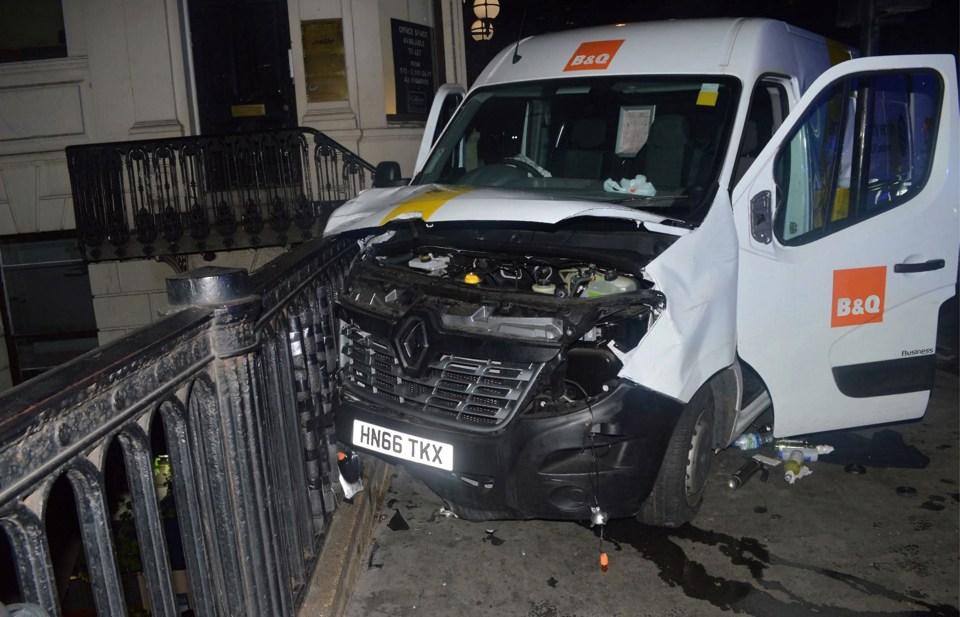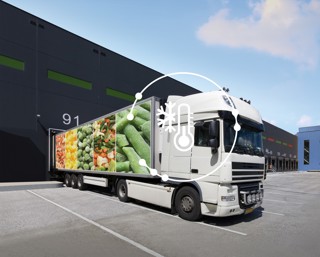Telematics or tougher van hire rules should be employed to combat terrorism after vehicles were used in recent attacks.
Following the incident in June when a man drove a rented van into worshippers gathered near Finsbury Park Mosque in north London, leaving one man dead and eight injured, Met Police commissioner Cressida Dick has suggested regulations around hiring a van could need tightening.
It came days after Khuram Butt, Youssef Zaghba and Rachid Redouane, used a hire van to mow down people on London Bridge before launching a knife rampage that left eight people dead and 48 injured. And in March, four people were left dead and more than 50 injured when Khalid Masood drove his rented vehicle into pedestrians walking across Westminster Bridge before crashing it into the Houses of Parliament and killing PC Keith Palmer.
Now the Government is investigating whether ‘geo-fencing’ could be used to neutralise unauthorised vehicles entering restricted zones.
Geo-fences are an electronic boundary, commonly employed by commercial fleet operators using telematics and tracking systems, which is created by the on-board computer working in conjunction with global positioning satellites. If the vehicle enters a specific area an alert can be raised or, in the case of combatting terrorism, the car, van or truck could be stopped in its tracks.
Trials of the technology have been taking place in Sweden after a truck was driven into pedestrians shopping in Stockholm in April, leaving four people dead.
The Swedish government said in a statement that geo-fencing was a “technological solution to enable only authorised vehicles to be driven within a geographically defined area”.
Its officials raised the matter at a briefing of the EU transport council last month, saying that it needed to consider what measures were available to combat the problem.
The UK’s deputy permanent representative to the EU, Katrina Williams, told the meeting: “We in the UK are looking urgently at how we further work with the transport sector and other relevant parties to share information, knowledge and experience, as we explore how we can mitigate this threat.
“Like Sweden, we have also been looking at the role vehicle and digital technologies might play in preventing the impact of these attacks.”
Following the meeting, the transport council acknowledged in a statement that “new digital technologies, such as geo-fencing, can be useful in preventing and mitigating such attacks”.
Trak Global Group is convinced that telematics has a role to play. Andrew Brown-Allan, director of the technology company’s research division, Trak Labs, told Commercial Fleet: “It is now possible to immobilise a vehicle remotely, using the technology that goes into a telematics black box.
“Since 2015, there have been at least 14 vehicle attacks worldwide, with nearly 850 casualties. We need to harness this relatively new technology to stop terrorists turning vehicles into weapons of mass destruction.”
Brown-Allan explained that the police are becoming increasingly aware of telematics, with several examples of data being used in prosecutions.
“If people are comfortable with telematics solving crime and preventing crime, there is no reason why it cannot be used for counter-terrorism,” he said.
Tougher rules for hiring a van could also help, according to Cressida Dick.
She told the London Assembly in the wake of the most recent UK attacks that rental rules could be tightened. “There’s a whole big review to be done. It might require some legislation; I don’t know. It might require some tweaking.”
However, while Dick acknowledged that it would be “very hard” to do something about van hire, she also urged rental companies to be vigilant.
Trade body, the British Vehicle Rental and Leasing Association (BVRLA), said its members work closely with law enforcement organisations across the country to share information and best practice in relation to the latest security threats.
“We have a long-established set of protocols to enable the efficient reporting of any suspicious activity and many operators have specialist security managers that regularly support the police with enquiries,” said chief executive Gerry Keaney. “We do not have access to counter-terrorism watch-lists, but we are exploring ways in which we can share information more effectively with law enforcement organisations to help them with their investigations.”
Darren Osborne, 47, from Cardiff, has been charged in connection with the Finsbury Park attack and is due to appear in court this month.






















PS - 03/08/2017 16:10
What are they on about? How does a crackdown on van rental firms stop anybody buying a car for £50 and using it for the same purpose. It certainly wouldn't have "telematics" fitted or a tracker. Its obvious that the people carrying out atrocities are deranged and the police haven't sufficient resources to stop them even if it was possible. Get real!